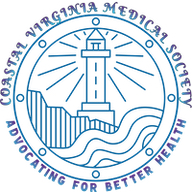And Surgeons
The Art and Science of Patient Care

Patient care is both a science and an art that requires healthcare professionals to integrate their knowledge, skills, and empathy to provide high-quality, personalized care to patients. While the science of patient care focuses on the evidence-based practices and clinical guidelines that inform healthcare delivery, the art of patient care is the intangible, subjective component that involves connecting with patients on a deeper, more emotional level.
The Science of Patient Care
The science of patient care is rooted in evidence-based medicine, which relies on the best available research evidence to inform clinical decision-making. Evidence-based medicine involves critically appraising the literature, applying the findings to the patient's unique circumstances, and evaluating the outcomes of the chosen intervention. The goal of evidence-based medicine is to optimize patient outcomes while minimizing harm and reducing costs.
Evidence-based medicine has led to numerous advances in patient care, including the development of new diagnostic tools and treatments for a variety of conditions. Healthcare professionals must stay up-to-date with the latest research and clinical guidelines to provide the best possible care to their patients.
The Art of Patient Care
While the science of patient care is essential, the art of patient care is equally important. The art of patient care involves empathy, compassion, and communication skills that enable healthcare professionals to connect with patients on a deeper, more personal level. The art of patient care is the intangible, subjective component that can make all the difference in a patient's experience.
Empathy is a critical component of the art of patient care. Empathy involves the ability to understand and share the feelings of another person. Healthcare professionals who can empathize with their patients are better able to establish trust, build rapport, and provide personalized care that meets the patient's unique needs.
Compassion is another critical component of the art of patient care. Compassion involves a genuine concern for the patient's well-being and a desire to alleviate their suffering. Healthcare professionals who demonstrate compassion are better able to provide emotional support to patients and their families.
Effective, honest, communication is also a key component of the art of patient care. Healthcare professionals who can communicate effectively with their patients are better able to establish trust, provide information, and involve patients in their care. Effective communication can also help to reduce patient anxiety and improve their overall satisfaction with their care.
A blend of the art and science of medicine is based on standards of care established from Hippocrates to Osler and beyond. It is important, even critical, not to forget or disregard these principles, but embrace them and make them your own, especially in these difficult times of mistrust and disinformation.



Recent Articles
-
CVMS-Bulletin-November-2025
Nov 28, 25 08:23 AM
CVMS Newsletter - Medical News and Commentary -
CVMS Membership Drive 2025
Oct 16, 25 10:53 AM
Information about the membership importance and benefits. -
Letter to Governor Youngkin re: COVID-19 Vaccine Recommendations
Oct 16, 25 10:45 AM
The Honorable Glenn Youngkin
Office of the Governor
P.O. Box 1475
Richmond, VA 23218
Dear Governor Youngkin,
On behalf of the Coastal Virginia Medical Society (CVMS), based in the Hampton Roads area of Sou…
Sign Up for the New CVMS Bulletin
Things You Need to Know
News Releases
from the
Virginia Beach Health Department
Norfolk Public Health Department
Chesapeake Health Department
The Roman Fasces was a symbol of strength and power occurring as a result of many binding together. It was made of multiple elm or birchwood rods about 5 feet long tied together and sometimes including an axe. It was carried by attendants to soldiers or powerful figures in ancient Rome. For us, it symbolizes that we are stronger and more powerful if we bind together in supporting our goals.





